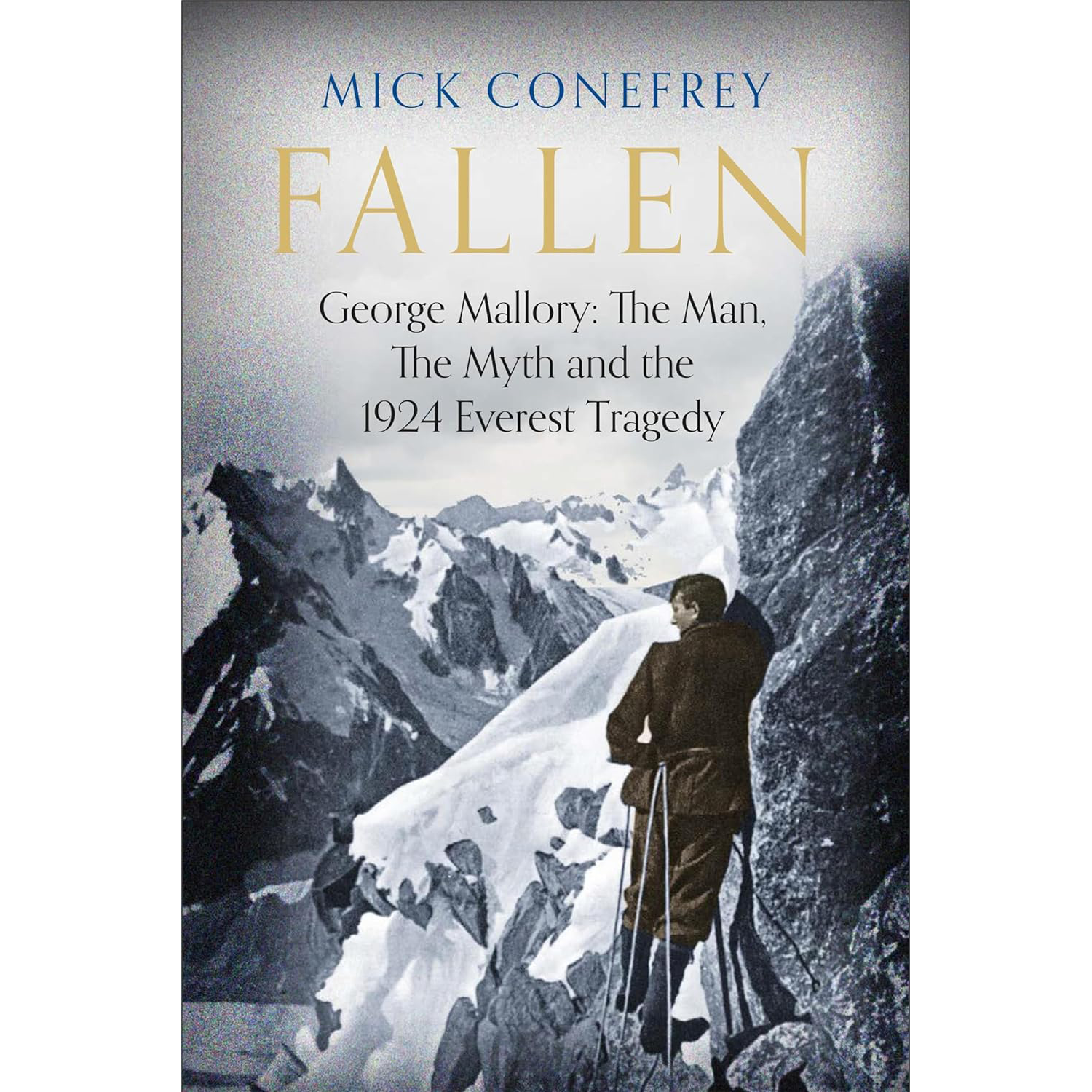 Image 1 of
Image 1 of


Fallen
Fallen: George Mallory: The Man, The Myth and the 1924 Everest Tragedy | By Mick Conefrey
On 6 June, 1924 George Mallory donned an oxygen set and set off for the summit of Everest with his young partner Andrew Irvine. Two days later they were glimpsed through clouds heading upwards, but after that they were never seen again. Whether they died on the way up or on the way down no one knows.
In the years following his disappearance, Mallory was elevated into an all-British hero. Dubbed by his friends the 'Galahad' of Everest, he was lionised in the press as the greatest mountaineer of his generation who had died while taking on the ultimate challenge. Handsome, charismatic, daring, he was a skilled public speaker, an athletic and technically gifted climber, a committed Socialist and a supremely attractive figure to both men and women.
His friends ranged from the gay artists and writers of the Bloomsbury group to the best mountaineers of his era. But that was only one side to him. Mallory was also a risk taker who according to his friend and biographer David Pye, could never get behind the wheel of a car without overtaking the vehicle in front, a climber who pushed himself and those around him to the limits, a chaotic technophobe who was forever losing equipment or mishandling it, the man who led his porters to their deaths in 1922 and his young partner to his uncertain end in 1924.
So who was the real Mallory and what were the forces that made him and ultimately destroyed him? Why did the man who denounced oxygen sets as 'damnable heresy' in 1922 perish on an oxygen-powered summit attempt two years later? And above all, what made him go back to Everest for the third time? Based on diaries, letters, memoirs and thousands of contemporary documents, Fallen is both a forensic account of Mallory's last expedition to Everest in 1924 and an attempt to get under his skin and separate the man from the myth.
Fallen: George Mallory: The Man, The Myth and the 1924 Everest Tragedy | By Mick Conefrey
On 6 June, 1924 George Mallory donned an oxygen set and set off for the summit of Everest with his young partner Andrew Irvine. Two days later they were glimpsed through clouds heading upwards, but after that they were never seen again. Whether they died on the way up or on the way down no one knows.
In the years following his disappearance, Mallory was elevated into an all-British hero. Dubbed by his friends the 'Galahad' of Everest, he was lionised in the press as the greatest mountaineer of his generation who had died while taking on the ultimate challenge. Handsome, charismatic, daring, he was a skilled public speaker, an athletic and technically gifted climber, a committed Socialist and a supremely attractive figure to both men and women.
His friends ranged from the gay artists and writers of the Bloomsbury group to the best mountaineers of his era. But that was only one side to him. Mallory was also a risk taker who according to his friend and biographer David Pye, could never get behind the wheel of a car without overtaking the vehicle in front, a climber who pushed himself and those around him to the limits, a chaotic technophobe who was forever losing equipment or mishandling it, the man who led his porters to their deaths in 1922 and his young partner to his uncertain end in 1924.
So who was the real Mallory and what were the forces that made him and ultimately destroyed him? Why did the man who denounced oxygen sets as 'damnable heresy' in 1922 perish on an oxygen-powered summit attempt two years later? And above all, what made him go back to Everest for the third time? Based on diaries, letters, memoirs and thousands of contemporary documents, Fallen is both a forensic account of Mallory's last expedition to Everest in 1924 and an attempt to get under his skin and separate the man from the myth.
Fallen: George Mallory: The Man, The Myth and the 1924 Everest Tragedy | By Mick Conefrey
On 6 June, 1924 George Mallory donned an oxygen set and set off for the summit of Everest with his young partner Andrew Irvine. Two days later they were glimpsed through clouds heading upwards, but after that they were never seen again. Whether they died on the way up or on the way down no one knows.
In the years following his disappearance, Mallory was elevated into an all-British hero. Dubbed by his friends the 'Galahad' of Everest, he was lionised in the press as the greatest mountaineer of his generation who had died while taking on the ultimate challenge. Handsome, charismatic, daring, he was a skilled public speaker, an athletic and technically gifted climber, a committed Socialist and a supremely attractive figure to both men and women.
His friends ranged from the gay artists and writers of the Bloomsbury group to the best mountaineers of his era. But that was only one side to him. Mallory was also a risk taker who according to his friend and biographer David Pye, could never get behind the wheel of a car without overtaking the vehicle in front, a climber who pushed himself and those around him to the limits, a chaotic technophobe who was forever losing equipment or mishandling it, the man who led his porters to their deaths in 1922 and his young partner to his uncertain end in 1924.
So who was the real Mallory and what were the forces that made him and ultimately destroyed him? Why did the man who denounced oxygen sets as 'damnable heresy' in 1922 perish on an oxygen-powered summit attempt two years later? And above all, what made him go back to Everest for the third time? Based on diaries, letters, memoirs and thousands of contemporary documents, Fallen is both a forensic account of Mallory's last expedition to Everest in 1924 and an attempt to get under his skin and separate the man from the myth.





